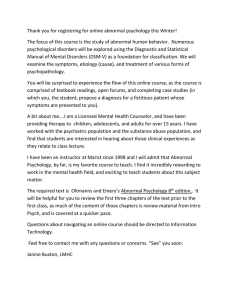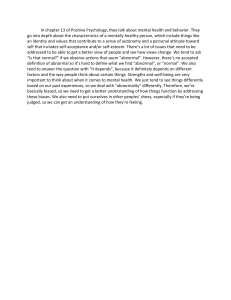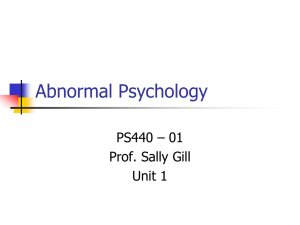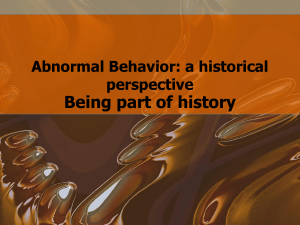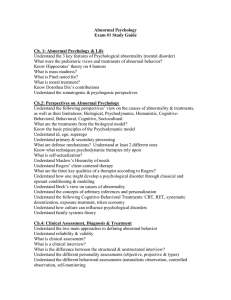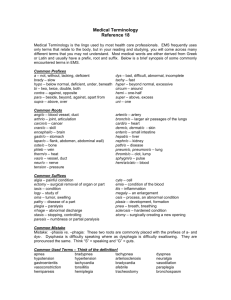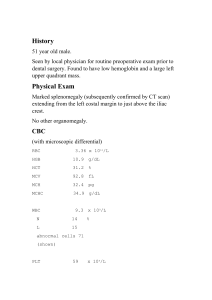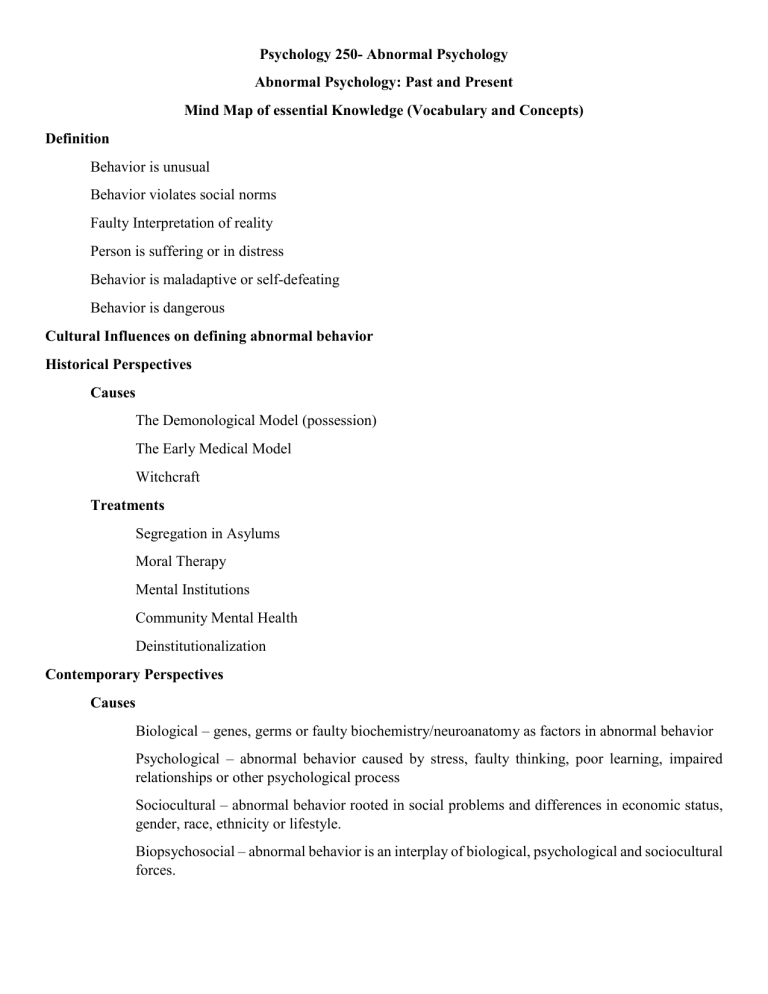
Psychology 250- Abnormal Psychology Abnormal Psychology: Past and Present Mind Map of essential Knowledge (Vocabulary and Concepts) Definition Behavior is unusual Behavior violates social norms Faulty Interpretation of reality Person is suffering or in distress Behavior is maladaptive or self-defeating Behavior is dangerous Cultural Influences on defining abnormal behavior Historical Perspectives Causes The Demonological Model (possession) The Early Medical Model Witchcraft Treatments Segregation in Asylums Moral Therapy Mental Institutions Community Mental Health Deinstitutionalization Contemporary Perspectives Causes Biological – genes, germs or faulty biochemistry/neuroanatomy as factors in abnormal behavior Psychological – abnormal behavior caused by stress, faulty thinking, poor learning, impaired relationships or other psychological process Sociocultural – abnormal behavior rooted in social problems and differences in economic status, gender, race, ethnicity or lifestyle. Biopsychosocial – abnormal behavior is an interplay of biological, psychological and sociocultural forces. Methods of Treatment Psychotherapies Psychodynamic – conflict, anxiety, defense mechanisms (often unconscious) uncovered through psycho-analysis – free association, dream analysis, transference. Behavior Therapy – faulty learning changed through systematic desensitization, flooding, selective reinforcement/punishment, modeling, etc. Humanistic Therapy – through unconditional positive regards, empathy and genuineness; therapist coach clients to work through their problems Cognitive Therapy – therapist helps clients become aware of and change conscious and unconscious short term mental events (including expectations, appraisals and attributions), and long term mental events such as attitudes and beliefs. Cognitive-Behavior Therapy – a combination of cognitive and behavior strategies Eclectic Therapy – integration of a variety of approaches Group, Family and Couple Therapy Multicultural issues in Psychotherapy African, Hispanic Asian and Native Americans Ethnic Group difference in use of Mental Health Services Who treats? Psychologists Psychiatrists Social workers Psychoanalysts Counselors Nurses Where is treatment done? Private Clinics Hospitals Community
